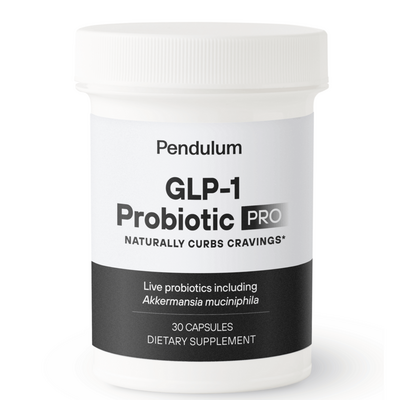New Research Shows Natural Progesterone Can Help Treat Breast Cancer
In the Journal of Nature July 16, 2015, a large team of scientists working on multiple continents published a research study that came to startling conclusions about breast cancer and natural progesterone. The team determined that unlike synthetic progestins, which increase breast cancer risks, natural progesterone has the potential to slow the growth of many breast cancer tumors or even shrink them.
While this finding is stunning, it is not new. It is one of several conclusions about progesterone that John R. Lee, M.D. and David Zava, Ph.D. made more than a decade ago when they co-wrote the book, What Your Doctor May Not Tell You About Breast Cancer. Now that their findings have been confirmed by other scientists, the medical community can no longer assume that natural progesterone promotes breast cancer like progestins do. Progestins are molecularly altered synthetic versions of progesterone.
For many years is has been known that women presenting with estrogen receptor positive and progesterone receptor positive have better outcomes than women whose tumors do not have these receptors. Scientists at Cancer Research UK and the University of Adelaide in Australia studied the interactions between estrogen and progesterone receptors in breast cancer cells. They published their findings in the July 16, 2015 issue of the scientific journal Nature.
So, what are receptors and what do they do? Receptors can be found in the thousands on a single cell. They are like a bolt lock on a door. This bolt lock is programmed to accept a certain key to be unlocked. There are many different types of receptors programmed specifically for each type of hormone. Thyroid receptors for thyroid hormones, adrenal receptors for adrenal hormones and so on. Estrogen and progesterone receptors are found on many cells in our bodies including breast tissue, uterine tissue, vaginal tissue, brain, bone, and many more. When these receptors come in contact with their specific hormone a message is sent into cell and cell behavior is changed. These messages are turning on or off genes within the cells. These receptors can only work if the body provides enough
hormone to activate the receptors
Using new cutting edge technology, radical new information about the effects of progesterone on estrogen receptors have been discovered. (By the way, this new discovery has been proposed by Dr. David Zava and Dr. John Lee 13 years ago. In 2002, the two men reviewed all of the available research on breast cancer in their groundbreaking book, What Your Doctor May Not Tell You About Breast Cancer) What they found amazed the researchers. What they found amazed them. When activated by progesterone, the progesterone receptors attached themselves to the estrogen receptors. Once this happened, the estrogen receptors stopped turning on genes that promote the growth of the cancer cells. Instead, they turned on genes that promote the death of cancer cells (known as apoptosis) and the growth of healthy, normal cells!
At first this research was performed in test tubes. They then ran the same tests on breast cancer tumors
in live mice. They found that after 25 days the tumors in the mice treated with estrogen only the tumors
grew. The tumors treated with both estrogen and progesterone reduced in size. The greatest reduction
in size occurred in mice that were treated with progesterone AND Tamoxifen taken together. The experiments conducted by the research team led them to a powerful conclusion.
When activated by progesterone, progesterone receptors bind to and “reprogram” estrogen receptors,
transforming them from agents that turn on cancer-promoting genes to ones that turn on genes which
slow down or even reverse the growth of cancer cells. The researchers also pointed out that their
conclusions apply to natural, bioidentical progesterone. They rightly observed that many progestins –
the synthetic, molecularly altered forms of progesterone found in pharmaceutical drugs – have been
clearly shown to increase rather than decrease breast cancer risks.
These findings are incredibly good news for women diagnosed with estrogen receptor
positive/progesterone receptor positive breast cancers. If such women have healthy progesterone levels
or raise them to those levels through natural progesterone supplementation, they could dramatically
improve their treatment outcomes. According to the American Cancer Society, around two out of three
of all breast cancers are hormone receptor-positive. This means that the majority of women suffering
from breast cancer may benefit from adding natural progesterone to their treatment plans.
It has been known for years that estrogen turns on genes within cancer cells to cause rapid growth of
these cells. Estrogen, particularly estradiol and it’s metabolites, are the potent fuel for breast cancer.
If you are at risk it would be wise to have an estrogen metabolite test. It a simple urine test that can tell
you how you are metabolizing your estradiol. When reviewing this test, I can then help you make
changes in your diet that will affect these metabolic pathways of estradiol. This is why oncologists try so hard to reduce estrogen in the body by using drugs such as Tamoxifen, Arimidex, and Femara.
This groundbreaking study confirms our belief that women should maintain normal Progesterone levels even if they have had a hysterectomy. Historically it has been common practice for physicians to not recommend Progesterone therapy if a woman no longer has a uterus. This is wrong for many reasons. Estrogen levels should always be balanced with Progesterone levels.
References
Mohammed, Hisham, et al “Progesterone receptor modulates ER-a action in breast cancer,” Nature
2015; 523; 313-317.
Perks, Bea “Progesterone receptor could slow breast cancer growth,” Pharmaceutical Journal, PJ 17 Jul
2015.








